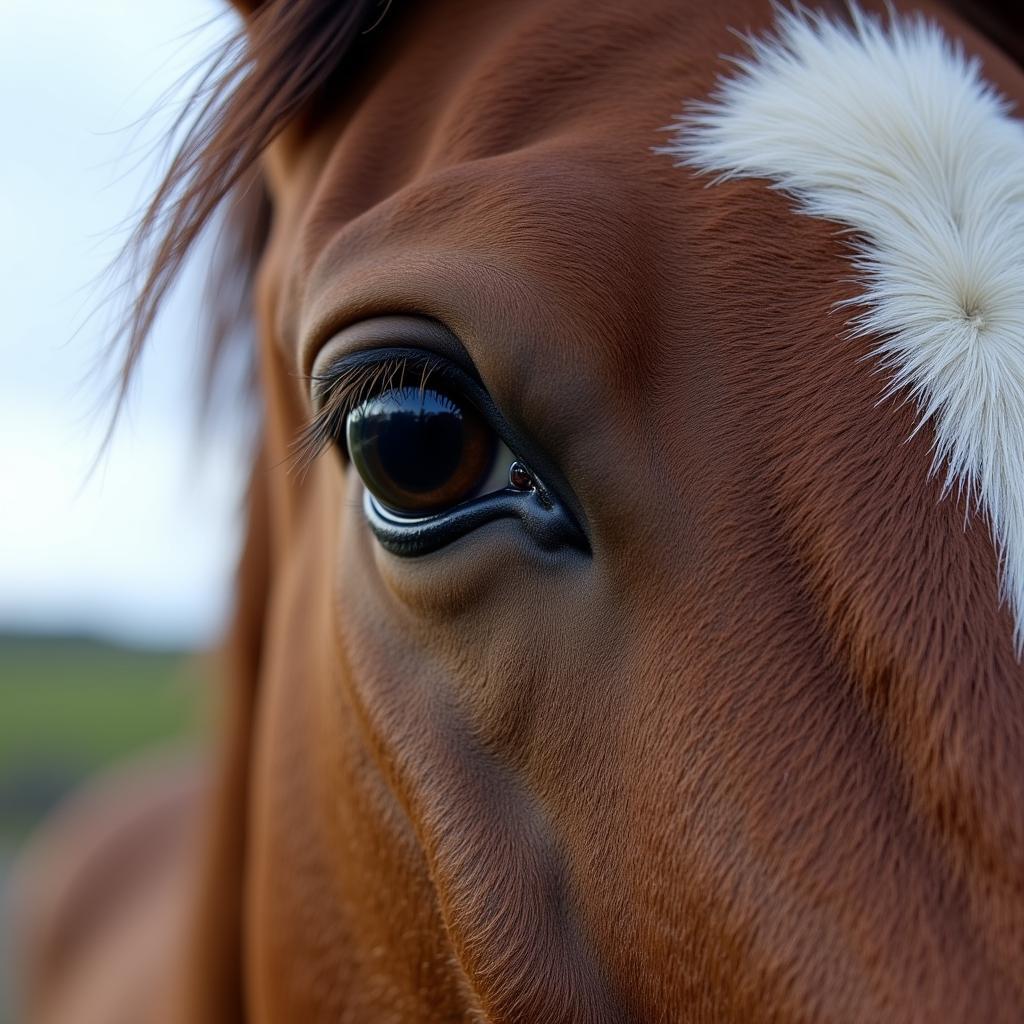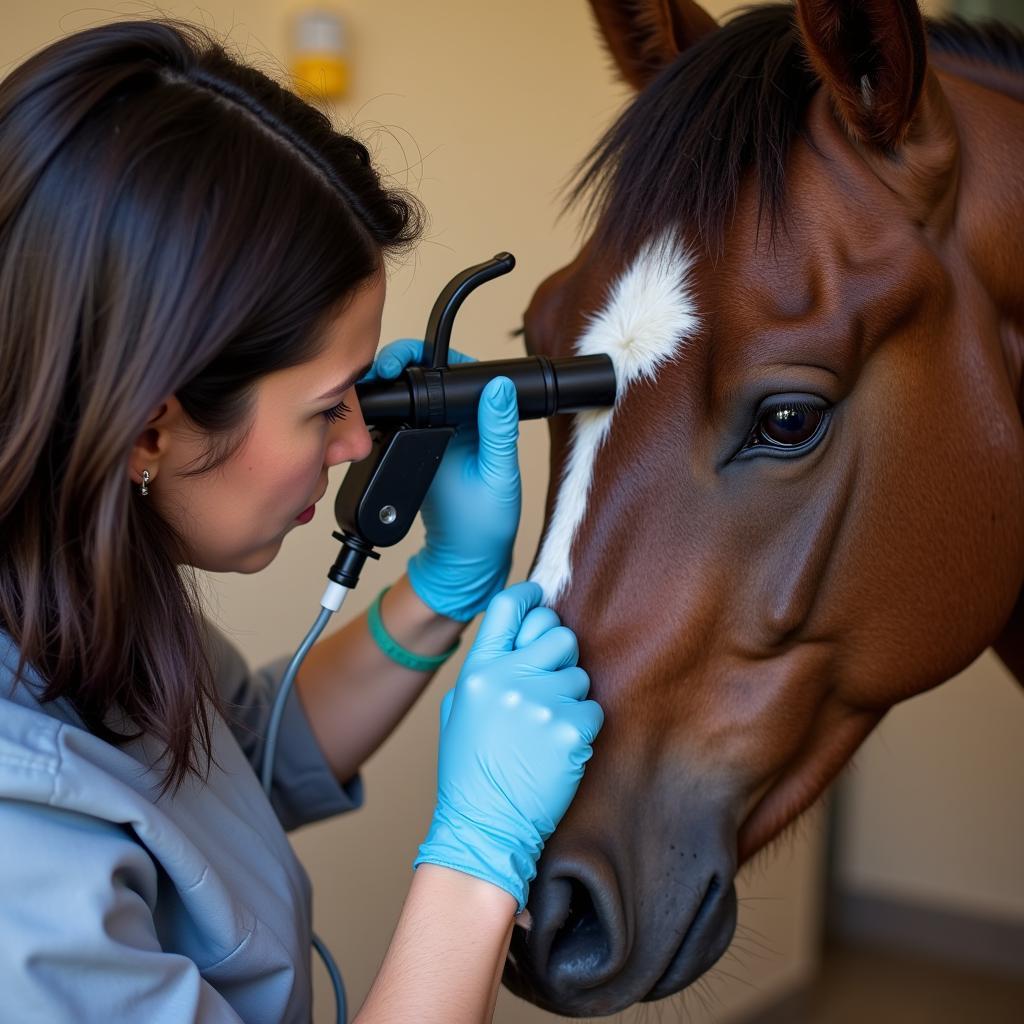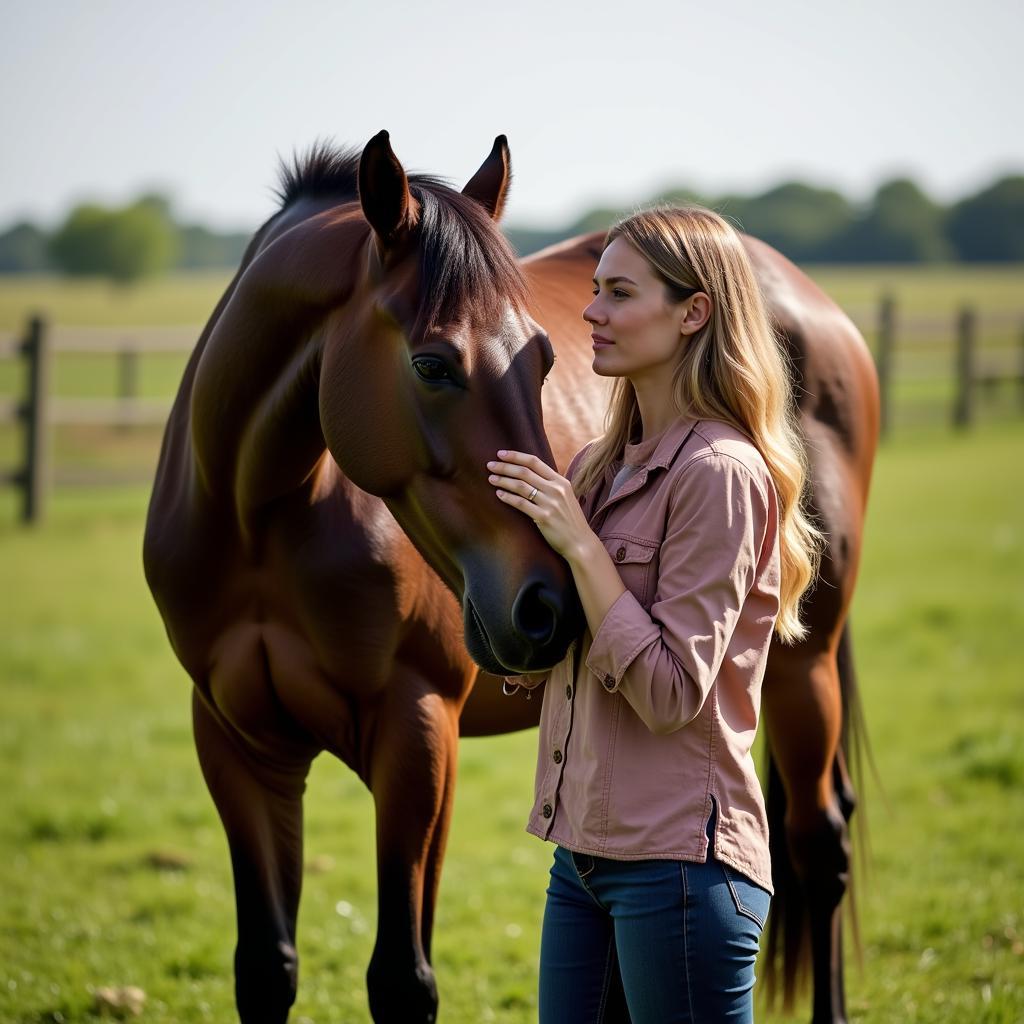Moon blindness, also known as Equine Recurrent Uveitis (ERU), is a serious eye condition that affects horses. It’s characterized by recurring inflammation of the uvea, the middle layer of the eye. This can lead to pain, vision impairment, and even blindness in severe cases. So, Can You Ride A Horse With Moon Blindness?
 Horse showing symptoms of moon blindness
Horse showing symptoms of moon blindness
Understanding Moon Blindness and its Impact on Riding
The answer to whether or not you can ride a horse with moon blindness isn’t straightforward. It depends on several factors, including the severity of the condition, the horse’s individual response to treatment, and your veterinarian’s recommendations.
Here’s a breakdown of why riding a horse with moon blindness can be complicated:
- Pain and Discomfort: During a flare-up, the horse’s eye will be painful and sensitive to light. This discomfort can make riding difficult or even impossible, as the horse may be unwilling or unable to perform.
- Vision Impairment: Moon blindness can cause blurry vision, blind spots, and in severe cases, complete blindness. A horse with impaired vision may be unsafe to ride, especially in unfamiliar environments or challenging terrain.
- Stress and Exertion: Riding can be stressful for any horse, and this stress can exacerbate moon blindness symptoms. The added exertion and potential for injury further complicate matters.
 Veterinarian performing an eye exam on a horse
Veterinarian performing an eye exam on a horse
When Riding Might Be Possible
In some cases, riding a horse with moon blindness might be possible:
- Controlled Environments: If the horse is experiencing a mild flare-up or is well-managed with medication, riding in a controlled environment like an arena might be permissible.
- Low-Impact Activities: Consider light riding activities such as walking or short trail rides at a relaxed pace. Avoid activities that require intense focus or sudden movements.
- Veterinary Guidance: Always consult with your veterinarian before riding a horse with moon blindness. They can assess the horse’s condition, advise on appropriate activities, and recommend safety precautions.
Prioritizing Your Horse’s Well-being
Ultimately, the most crucial aspect is your horse’s well-being. If you have a horse diagnosed with moon blindness, work closely with your veterinarian to manage the condition and provide the best possible care.
While riding might be possible in some instances, it’s essential to prioritize the horse’s comfort and safety above all else. If you have any doubts, err on the side of caution and explore alternative ways to interact with and enjoy your horse, such as groundwork training or simply spending quality time together.
“I always advise owners to remember that every horse with moon blindness is different,” says Dr. Emily Carter, a renowned equine ophthalmologist. “What one horse tolerates, another might find unbearable. Open communication with your vet and careful observation of your horse’s behavior are key.” Horse and owner bonding in a pasture
Horse and owner bonding in a pasture
FAQs about Riding Horses with Moon Blindness
Can moon blindness be cured?
Unfortunately, there is no cure for moon blindness. However, with proper management and treatment, the frequency and severity of flare-ups can be reduced.
What are the signs of a moon blindness flare-up?
Common signs include squinting, tearing, cloudiness of the eye, redness, and light sensitivity.
Is moon blindness painful for horses?
Yes, moon blindness can be very painful, especially during flare-ups.
Can a horse go blind from moon blindness?
In severe cases, moon blindness can lead to blindness in one or both eyes.
Need More Information?
For further inquiries about moon blindness or any other concerns about your horse’s health, please don’t hesitate to contact us. Our team at Justus Horses USA is committed to providing you with the resources and support you need.
Call us at: 0772127271
Email us at: [email protected]
Visit us at: QGM2+WX2, Vị Trung, Vị Thuỷ, Hậu Giang, Việt Nam
Our customer care representatives are available 24/7 to assist you.